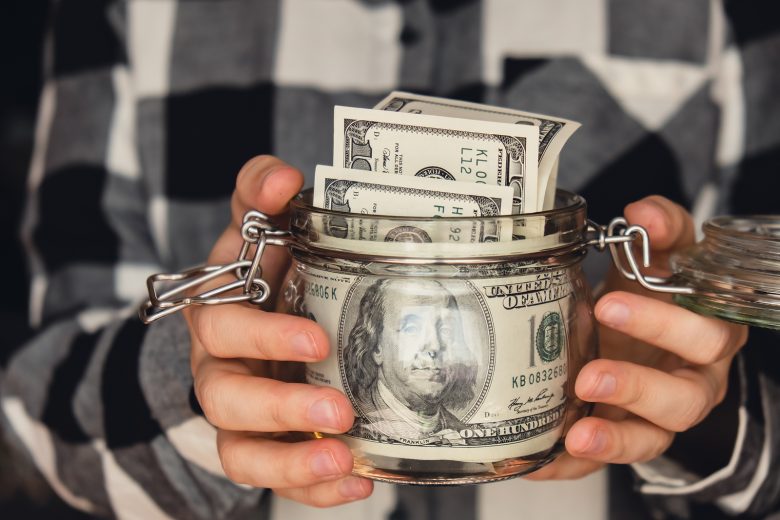Although many people want to own their own home, the idea of saving for a down payment can be very difficult. However, if you use smart methods and plan your money well, you can make this dream a reality. These tips can help you save the money you need for a down payment on a house.
1. Make a Spending Plan and Stick to it:
Creating a realistic budget is one of the first things you should do when saving for a down payment. Take a look at your daily income and expenses to see where you can save money and put a certain amount aside in your down payment fund. Sticking to your budget will help you make steady progress toward your goals.
2. Put Your Savings on Autopilot:
Set an amount to be deposited into your savings account each month. This ensures that you have a set amount of your income going into your down payment fund so you aren’t tempted to spend it on other things.
3. Research Programs to Help with a Down Payment:
Many governments and nonprofits have programs that can help with down payments. Check if these options are available in your region. You may be able to get grants or low-interest loans through certain programs that can help you reach your down payment goal faster.
4. Save Unnecessary Costs:
Take a look at what you spend your money on and think about what unnecessary costs you can save or eliminate. Put the money you save in the form of a down payment. Making a few small changes to your daily routine can save you a lot of money over time.
5. Add Your Income:
Look for ways to make more money, such as working part-time, freelancing, or starting a side business. With more money coming in, you can save money faster and reach your down payment goal faster.
6. Invest Wisely:
You may want to invest your savings in low-risk investments that can provide better returns than a regular savings account. Talk to a financial advisor about investment options that fit your risk tolerance and when you want to buy a home.
7. Talk About Your Rent:
If you are currently renting, talk to your landlord about lowering your rent. If you tell them you want to save for a down payment on a house, they may be willing to work with you to help you with your monthly budget.
8. Keep an Eye on Your Credit Score:
If you have a higher credit score, you may be able to get a better mortgage rate. Check your credit score regularly and take steps to improve it, such as paying off debt and making sure you pay your bills on time.
9. Consider a Program for First-time Homebuyers:
Research government or lender programs to help first-time homebuyers. People who buy their first home through these programs often receive special benefits, lower interest rates, or a smaller down payment.
10. Set Achievable Goals:
Divide your down payment goal into smaller steps that you can easily achieve. Celebrate your progress every step of the way. This can help you stay motivated and focused on your ultimate goal: becoming a homeowner.
11. Raising Money through Crowdfunding and Gifts:
You can use donation sites or ask for financial help from family and friends who want to help you buy a house. Some websites are great for raising money for housing-related causes, which can help you save even more money.
12. Understand Your Mortgage Options:
Learn about the different mortgage options available and choose one that suits your budget. Some mortgages have a lower down payment, making it easier for new borrowers to obtain the loan. Research different loans and compare their terms to find the loan that suits you best.
13. Find Different Ways to Make Money:
Adding more ways to make money can put you on a more stable financial footing. Consider options such as buying dividend-paying stocks, starting a small business, or trading real estate to earn passive income.
14. Find Good Value for Money:
Look for homes that fit your budget. It may be tempting to aim for your dream home, but it might be smarter to start with a smaller home. As your financial situation improves, you can consider future improvements.
15. Take Advantage of Employer Benefits:
Check to see if your company has programs that can help you purchase a home. Some companies help their employees achieve the goal of home ownership by providing them with cash or consulting services.
15. Take Advantage of Employer Benefits:
Check to see if your company has programs that can help you purchase a home. Some companies help their employees achieve the goal of home ownership by providing them with cash or consulting services.
16. Stay Abreast of Market Changes:
Stay up to date with changes in the real estate market in the area where you want to live. Understanding market dynamics can help you choose when and where to buy, saving you money in the long run.
Conclusion
Buying a home is a big step, and saving for a down payment can be difficult, but it can be done with careful planning and hard work. Using these smart strategies will not only help you achieve your homeownership goals but also help you build a strong financial future. Do what you need to do and stay focused, and you’ll have the keys to your new home in no time.
FAQs
1. How much should I put aside for a down payment?
A down payment of 20% of the home price is usually the best amount. However, some mortgage programs accept smaller percentages. Try to save as much as possible, taking into account your loan needs and current financial situation.
2. How can I save for a down payment faster?
You can save money faster by making more money, cutting unnecessary costs, and finding programs that can help you with a down payment. Other good ideas include setting realistic goals and setting up automatic ways to save money.
3. Does the government help with down payments?
Yes, there are many government funds and programs to help people buy their first home with a down payment. Find out if you qualify for local and national programs, then take advantage of the help available.
4. Can I use the deposit I saved to work?
Preserving principal for a down payment is important, but you may be able to earn better returns on low-risk investments than on traditional savings accounts. For personal assistance, please contact a financial advisor.
5. Can I negotiate a reduction in my rent so I can save more for my down payment?
If you get along well with your landlord, you may want to consider lowering your rent. If you tell them you want to save for a house, they may be willing to change your rent to help you reach your goal.
6. What are the programs for starters on the housing market? Am I eligible?
First-time homebuyer programs offer benefits such as lower interest rates or smaller down payments. Check out the programs offered by government agencies or lenders in your area and make sure you qualify.



